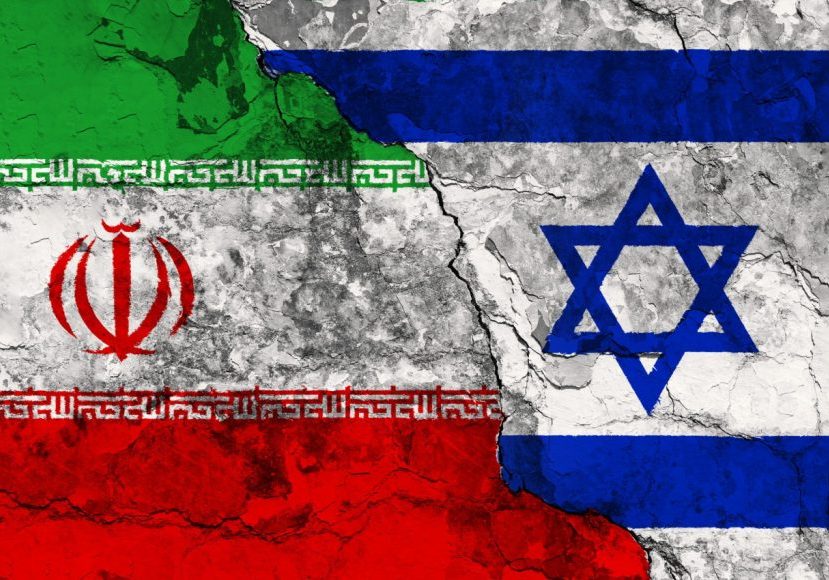IN THE MEDIA
Hamas – the key to Peace?
May 10, 2011 | Sharyn Mittelman

Sharyn Mittelman
(An edited version of this article appeared in the Canberra Times – 10 May 2011)
In Amin Saikal’s article “Palestinians’ High Hopes” (May 6) he naively describes the Fatah-Hamas unity pact as likely to enhance prospects for Israeli-Palestinian peace. In fact, the effect is very much likely to be the reverse.
Saikal, like some other analysts, implores Israel to negotiate with Hamas and insists the internationally-designated terrorist group has become “pragmatic.” Yet he makes no suggestion that Hamas should be required to amend its Charter to recognise Israel and abide by the pre-conditions for participation in the peace process established by the International Quartet (the UN, US, European Union and Russia) in 2006. Hamas has refused to accept these eminently sensible pre-conditions for a seat at the table, namely: recognition of Israel, renouncing terror and accepting all previous Israeli-Palestinian agreements and obligations.
Instead Saikal suggests that Israel should be satisfied with potential Hamas ‘de facto’ recognition of Israel achieved through a long-term truce. How could Israel trust a ‘truce’ with Hamas if it refuses to officially recognise its existence and denounce terror, and continues to say its goal is Israel’s destruction? Why would Israel want to enhance the power and stature of a violent enemy when the most that enemy is prepared to offer in exchange is in effect a promise that ‘We won’t kill you now, we’ll wait until a more opportune time?’
Those suggesting that Hamas is ‘moderating’ and ready to be a partner for peace are also ignoring Hamas’ ongoing violent behaviour. This year alone, Hamas has fired, or allowed to be fired, over 300 rockets at Israeli towns and deliberately fired a laser guided Kornet anti-tank missile at an Israeli school bus, all of which are clear war crimes. If this violence was not enough, while most of the world welcomed the operation that killed Osama bin Laden, Hamas leader Ismail Haniyeh condemned the United States for assassinating a “Muslim and Arabic warrior” and denounced it as the “continuation of the American oppression and shedding of blood of Muslims and Arabs.”
Finally, the suggestion that Israel should negotiate with Hamas contradicts to what Hamas itself says. Hamas has made it clear that neither peace nor negotiations are on the agenda for either itself or any government it participates in. Mahmoud al-Zahar, a senior Hamas leader, recently stated: “Our program does not include negotiations with Israel or recognising it… It will not be possible for the interim national government to participate or bet on or work on the peace process with Israel.”
The Fatah-Hamas reconciliation agreement appears aimed at having Hamas, which controls the Gaza strip, and the Palestinian Authority (PA), which governs the West Bank, ostensibly united before the international community in a bid to ask the United Nations (UN) General Assembly to recognise a Palestinian state, without a peace agreement with Israel, later this year. Unfortunately, a UN resolution cannot bring about genuine peace, which can be achieved only through direct negotiations. Furthermore, any Palestinian unilateral move toward independence could undo years of work achieved through negotiations by violating core elements of the Israeli-Palestinian Oslo accords
Incorporating Hamas in a unity government would allow a rejectionist terrorist organisation to both veto any new peace negotiations and strengthen its influence and control not only in Gaza but also in the West Bank. It risks undoing years of achievements between Israel and the PA towards peace in the form of extensive cooperation on security and joint policies which produced significant gains in Palestinian economic development in the West Bank.
These efforts went a long way toward building the basis of a future two-state deal. Since all three of Israel’s major parties support such a two-state future, as does Israeli public opinion, the PA’s decision to avoid negotiations with Israel for almost all of the past two years and instead join with the explicitly rejectionist Hamas can only be seen as short-sighted and misguided at best. Israel has made numerous offers of peace with the Palestinians which would satisfy all of their principal demands – most recently in the generous two-state solution plan offered by Prime Minister Ehud Olmert in 2008 – all of which have been rejected.
The argument that settlements are what is preventing peace does not withstand scrutiny – they take up around 2% of the West Bank, Israel has not built any new settlements since 1998, and has had a policy to not expand the boundaries of existing settlements since 2003. Israel withdrew all settlements from the Gaza strip in 2005 and since then Hamas has continually fired rockets and mortars into Israel. Nevertheless, Israel continues to pursue peace as Israeli Prime Minister Netanyahu stated: “we ask of anyone who says they want peace with Israel to abandon the goal of destroying Israel. We can make peace with an enemy but only an enemy who wants peace.”
Hamas cannot be viewed as a partner for peace until it renounces terrorism and recognises Israel, as demanded by the international Quartet. As US Secretary of State Hillary Clinton stated: “we cannot support any government that consists [sic] of Hamas unless and until Hamas adopts the Quartet principles.” While Australians welcome the demise of al-Qaeda’s leaders, no one should afford Hamas, another terrorist organisation which admires bin Laden and shares large parts of his agenda, legitimacy without it meeting these minimum and entirely reasonable requirements.
Sharyn Mittelman is a Policy Analyst at the Australia/Israel & Jewish Affairs Council (AIJAC).
Tags: Islamic Extremism











